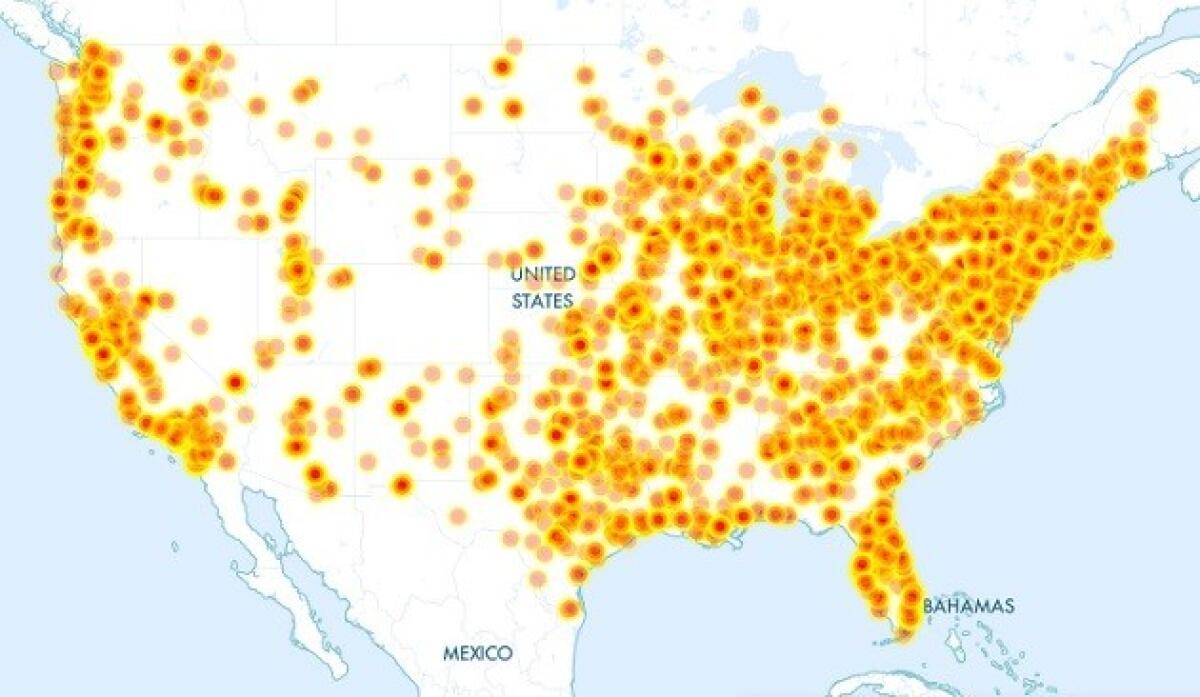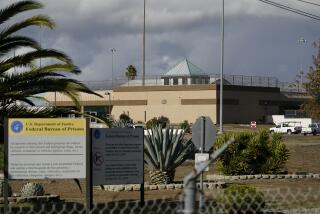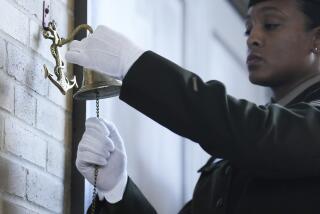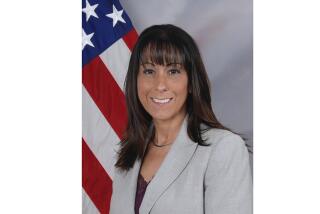Boy Scouts to review half-century of files on sexual predators

The Boy Scouts of America has announced it will review more than a half-century of its confidential files on alleged sexual predators and will inform law enforcement of any cases it had not previously disclosed.
The unprecedented review will examine about 5,000 cases dating from the 1950s to the present in which Scouting employees or volunteers were suspected of molesting children and were expelled from the organization, officials said.
The announcement came nine days after The Times published an investigation that found Scouting officials did not report to police hundreds of cases of alleged sexual abuse between 1970 and 1991, allowing many suspected predators to resign quietly or under false pretenses. The findings were based on a review of 1,600 files entered into evidence in a 1992 court case.
DATABASE: Tracking decades of allegations
The Scouts are bracing for a wave of increased scrutiny about the past handling of abuse allegations. In coming weeks, hundreds of files from past decades will be released to the public, as a result of a petition from media organizations in an Oregon court case.
In addition to announcing its review for law enforcement, the organization this week released a summary report from a University of Virginia psychiatrist it had commissioned to analyze hundreds of files dating from the 1960s. The researcher, Dr. Janet Warren, concluded that the files, intended as a blacklist, “functioned well in helping to keep unfit leaders out of Scouting.”
In an open letter released Tuesday, senior Scouting officials said the Warren study found that Scout leaders had made “a good faith effort” to keep child molesters out of the organization. The leaders also apologized for cases in which their efforts had failed.
FULL COVERAGE: Inside the Scout’s ‘perversion’ files
“In certain cases, our response to these incidents and our efforts to protect youth were plainly insufficient, inappropriate and wrong,” the letter said.
Warren’s study initially looked at Boy Scout files on 829 men who were expelled after they allegedly abused at least 1,300 children between 1965 and 1985. She went on to review additional files.
Warren concluded that the number of men expelled from Scouting for alleged sexual abuse each year represented a tiny fraction of the more than 1 million adults who volunteered for the Scouts, and no single profile of a pedophile emerged from her analysis.
“These people look perfectly normal,” she said in an interview Wednesday. “A number were married; there was a senator, a superintendent of schools, chiefs of police, firemen, laborers, school teachers.”
One of Warren’s central conclusions was that being involved with the Scouts “profoundly diminished” the chances that a boy would be subject to abuse.
DOCUMENTS: A paper trail of abuse
The conclusion was based on a comparison of the number of alleged victims identified in the Boy Scout files with that in government studies of abuse reported by social service workers legally required to do so.
Some experts, attorneys and advocates for victims of sexual abuse took issue with her findings.
“It is not at all clear to me that this is a comparison that can be made,” said David Lisak, a clinical psychologist whose research contributed to the oft-cited figure that one in six boys is sexually abused before age 16. “I would have to know a lot more — any researcher would have to know a lot more — about the circumstances under which reports were made within the BSA.”
The review does not account for cases of abuse that were not documented in the files, plaintiff’s attorneys said.
“Personally I have represented more than a hundred men abused by Scout leaders whose names were never entered in the ... files — even after BSA paid out substantial settlements on account of these abusers,” said Timothy Kosnoff, a Seattle plaintiff’s attorney. “The files are only the tip of the iceberg. Most perpetrators never get caught.”
Warren acknowledged the limitations of the data but stood by her conclusion. Her team was paid $75,000 for its study, according to the Boy Scouts.
A spokesman said the organization had not decided who would conduct the study intended to identify cases that might not have been reported to police, nor whether the findings would be made public. But he said Warren was a possible candidate for the job.
The Times analysis found that Scout officials routinely failed to report detailed allegations to law enforcement and in many cases worked with suspected molesters to keep the information from the public.
In 80% of the cases in which the Scouts learned of alleged abuse directly from parents or victims, the files contained no indication that police were notified, The Times found. In more than 100 cases, there was evidence that officials actively sought to conceal alleged abuse or allowed suspected abusers to do so.
It remains to be seen whether the Boy Scouts’ decision to analyze its own files will defuse the scrutiny of its record on sex abuse. Last year, the Canadian Scouting organization faced similar criticism when the Canadian Broadcasting Corp, exposed the existence of that organization’s confidential blacklist.
After initially denying the existence of the files, the head of Scouts Canada abruptly resigned and the organization agreed to release its confidential files to an independent auditing firm “to gather information that would inform its future child and youth safety strategies.”
The review found no systemic intent to cover up abuse. In 65 cases of alleged abuse, or 13% of them, Scouts Canada had failed to report the incidents to authorities.
The organization alerted Canadian law enforcement to the cases earlier this year. Scouts Canada called the review “an honest, open and transparent approach that confronted both the good and the bad of its history.”
Times investigation: Boy Scouts helped alleged molesters cover tracks, files show
More to Read
Start your day right
Sign up for Essential California for news, features and recommendations from the L.A. Times and beyond in your inbox six days a week.
You may occasionally receive promotional content from the Los Angeles Times.





